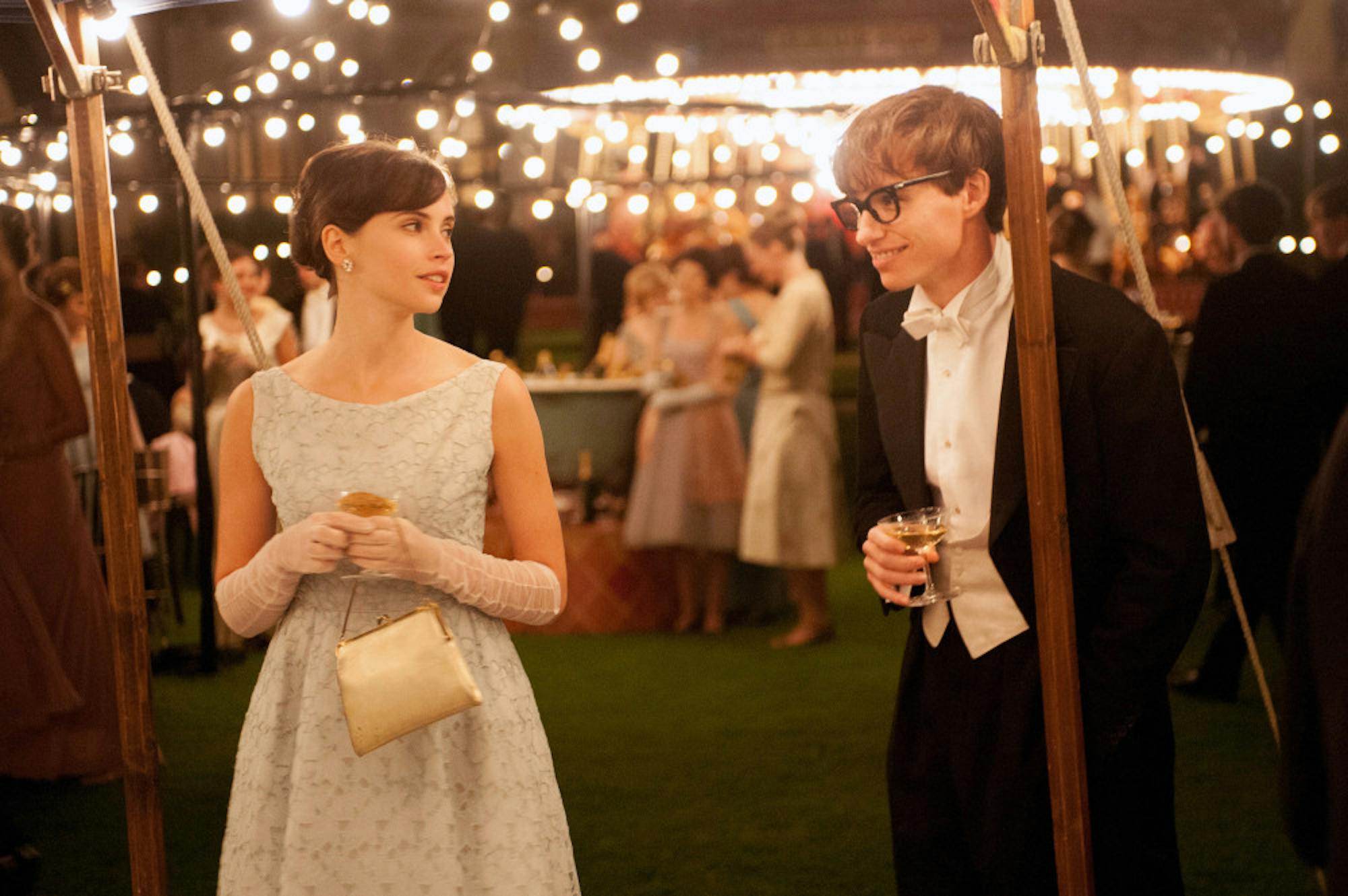It seems that this year’s Academy Award picks will be full of geniuses. Stephen Hawking's story, “The Theory of Everything,” released on Nov. 7, will join ranks with “The Imitation Game” (2014), a thriller about the life of mathematician Alan Turing, in the running for Oscar success. Unfortunately for us, a brilliant protagonist does not necessarily make a brilliant film. Lacking an impressive screenplay to support its impressive cast, this newest film leaves a lot to be desired.
The title, “The Theory of Everything,” refers to Stephen Hawking’s (Eddie Redmayne) quest to find one equation to unite Einstein’s theory of relativity with quantum physics, so as to understand the universe in its entirety. The bulk of the film, however, is more concerned with Hawking’s personal universe and his relationship with his wife, Jane (Felicity Jones). Time, important in Hawking’s theories, is a central theme of the film itself. Beginning with Stephen and Jane’s first meeting at a university party, the film spans the couples’ lives so far, keeping their relationship at its center as Hawking rises from newly-diagnosed Amyotrophic Lateral Sclerosis (ALS) patient to world-renowned cosmologist.
The film, an adaption of Jane Hawking’s memoir, “Traveling to Infinity: My Life With Stephen” (2013), succeeds as a tasteful and mostly faithful account of the Hawkings’ complicated relationship. Though generally slow-paced, especially in its second act, it remains fairly engaging to the end. In truth, most of its flaws could have been overlooked if the script weren’t so unnatural. The jarring, matter-of-fact scientific conversations might be commonplace for a super-genius like Hawking himself, but in the film they’re just distracting.
That said, "The Theory of Everything" has its touching moments, too. The most realistic interactions involve Jane and Stephen coping with Stephen’s illness and trying to find a way to preserve their love for each other. This is because "The Theory of Everything" is most comfortable as a love story -- the other elements of Hawking’s story just get in the way.
The film’s failures, however, should not reflect on the actors' talent. Redmayne, known for his role as Marius in "Les Misérables" (2012), does a phenomenal job portraying Hawking’s slow physical decline, work that will likely win him a nomination come Oscar season. Even after his character has lost nearly all mobility, Redmayne’s talent shines through, capturing Stephen’s subtle humor and wit. Jones, too, gives an admirable performance, quietly supporting the film as Stephen’s patient, if sometimes frustrated, spouse. Though Jane’s role is less dramatic, the film, like Stephen, would suffer without her.
Those who walk into the theater hoping to learn about Hawking’s scientific achievements -- wishing, maybe, to get a glimpse of what the coveted “theory of everything” might be -- will walk away disappointed. There is a lot of scribbling on chalkboards and big prestigious lecture halls. There are even several cliche scenes of animated students using nearby objects to illustrate big concepts about the universe. But the film is not educational; the science it includes is not prioritized and, chances are, audience members will end up tuning most of it out.
On the flip side, there’s an awful lot of unexpected discussion about the existence of God. Within the first two minutes of the film, Stephen has adamantly declared that he is an atheist, while Jane has shyly admitted that she belongs to the Church of England. Like the science in the film, this back and forth about faith has no real purpose except to support the love story. For this reason, Stephen's words about his personal philosophy at the conclusion of the film, though meant to sound like a ringing existential declaration, feel a little hollow.
So far, “The Theory of Everything” has made only a modest sum at the box office -- this week underselling even “Gone Girl” (2014), which came out more than a month ago, by a wide margin -- and it will likely stay that way. With so many good films in theaters right now, it’s best to save that weekend ticket for something else.
'The Theory of Everything' succeeds as love story and nothing more

Though it packs scientific language, "The Theory of Everything" does better as a heartfelt romance than a thought-provoking feature.
Summary
Lacking an impressive screenplay to support its impressive cast, this newest film leaves a lot to be desired.
2.5 Stars





